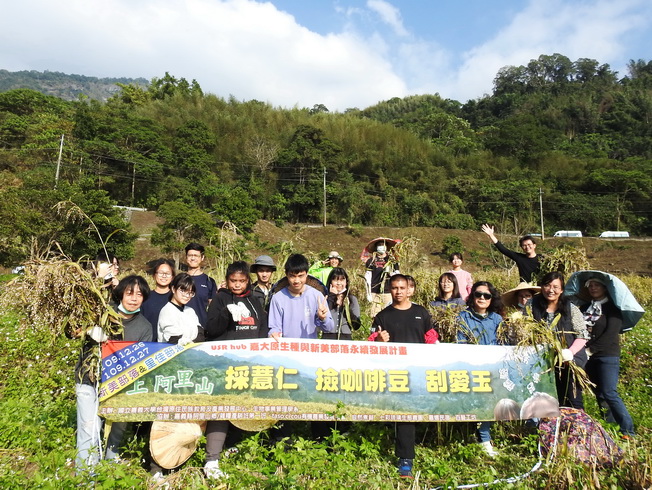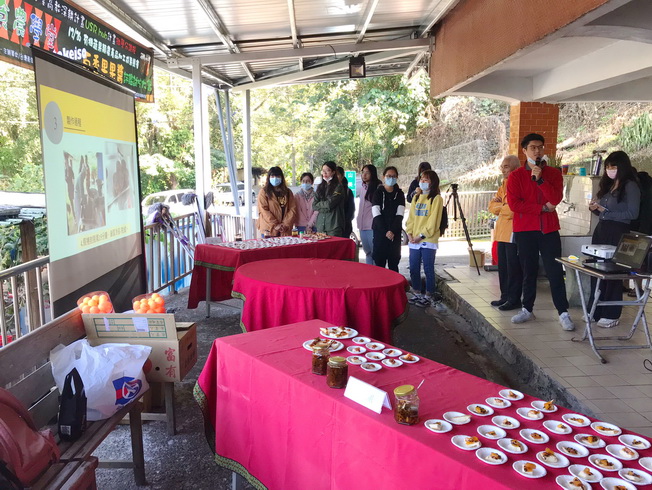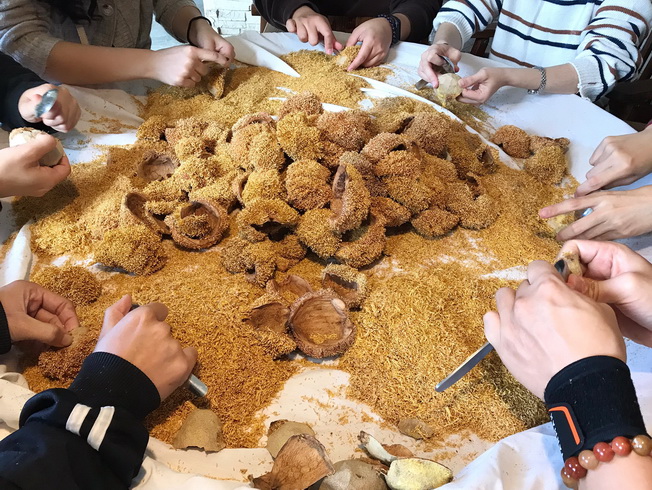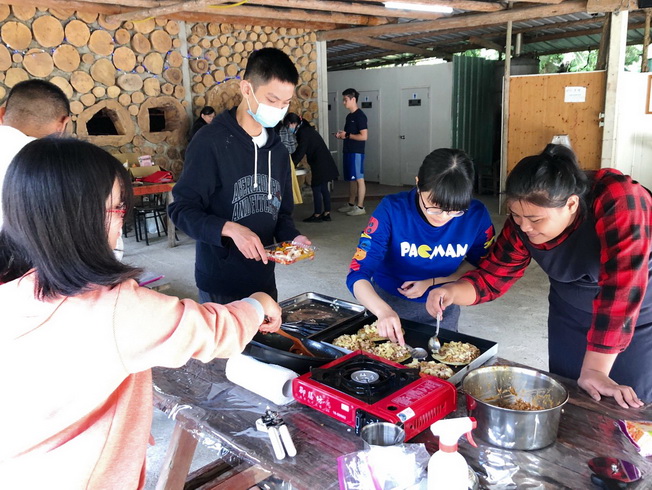| |
 |
News |
 |
Browsing: 2172 times

|
Date:2020-12-28
Bracket:2020 NCYU NEWS
Department:ncyu
|
 NCYU Tribal Food and Agriculture Classroom: Student Creative Food Tasting with the Tsou Tribe
NCYU Tribal Food and Agriculture Classroom: Student Creative Food Tasting with the Tsou Tribe
The National Chiayi University conducts the USR hub project, entitled “NCYU Sustainable Development of Native Species and Xinmei Tribal Village,” as part of the Higher Education Enhancement Project, Ministry of Education. Organized by the Taiwanese Indigenous Peoples Education and Enterprise Development Center and opened by the Department of Bio-industry and Agribusiness Administration, the “Tribal Food and Agriculture Classroom” is a micro-credit course that offers 1.5 credits. The teacher and student team headed out to Xinmei and Tapang? Tribal Villages in Alishan on Dec. 26th and 27th. With the themes of jams and pizzas, the presentation featured group contests, food tasting and a voting contest with the locals.
The two student groups participating in the Xinmei Game used local organic passion fruit as main ingredients. The passionate jam was finished with kumquat, sweet persimmon, apple and blueberry, etc. to bring out rich layers and fresh flavors. The jam was accompanied by the “Rainbow” bread baked with firewood by 7rainbow Ecological Farm in the Tapang? Tribal Village. The two completed each other with rich flavors and textures, and were well received by both adults and children in the Xinmei Tribal Village. The two student groups in the Tapang? Game added local ingredients such as Alishan tea, scallion and Chinese Toon into the pizza crust, matched with chicken and pork fillings, thill bamboo shoots, perilla, colored pepper, shredded cheese, etc. The six-inch pizzas were baked with a firewood grill at 300 degree Celsius for eight minutes to bring out their peak flavor. Nearly eighty local residents were attracted to join the food tasting event, and were effusive in their praises for the patalable, creative dishes by the students.
During the two-day presentation, the NCYU teachers and students also carried out service learning with local farmers by picking job’s tears, scraping Aiyu jelly seeds, and picking coffee beans. According to Wang Ling-Jiao, Chief of the Alishan Miscellaneous Grains Production and Marketing Group (Group 1), she was grateful to NCYU for their assistance in that the students came to help pick the job’s tears, which relieved the tribal people of the problem resulting from insufficient manpower in collecting, harvesting and post-harvesting the crops. Hou Fang-Yun, a second-year student of the Department of Wood Materials and Design, NCYU, indicated that she was happy to have taken this course, which allowed her to cement her food knowledge, and learn through hands-on practice. It also gave her the opportunity to interact with the Alishan indigenous tribes and learn more about the circumstances of their current development.
The micro-credit course, “Tribal Food and Agriculture Classroom,” debuted in the academic year 2020-2021. A total of twenty students from twelve departments elected the course. Sophia Ferng, Lecturer of the Department of Food Science, is in charge of front-end product development and food processing technology. Yung-Hsiang Lu, Professor of the Department of Bio-industry and Agribusiness Administration, supervises the back-end product packaging and marketing. While promoting Tsou’s agricultural products through division of labor and creative brainstorming among teachers and students, it is also a great way to market the tribe, which makes it profoundly significant. As principal investigator, Director of the Taiwanese Indigenous Peoples Education and Enterprise Development Center, and Deputy Dean of Student Affairs, Chen Ching-Yuh mentioned that, as NCYU is located at the foot of Alishan, they will work together to connect with the Alishan tribe’s industry, putting into full display the resources of the university, profession of the teachers and creativity of the students. It allows the students to acquire professional knowledge through taking the course, and, more importantly, know more about the culture and industry of the Tsou Tribe, which is geographically related to NCYU. It is their duty to do so. They hoped to promote the popularity of the tribe through the course and activities which were planned for the first time. It is expected to shorten the distances between NCYU, located at the foot of the mountain, and the tribes in the mountain.
|



|
 |

|
 |
|
 |
 |
|


 ][
][